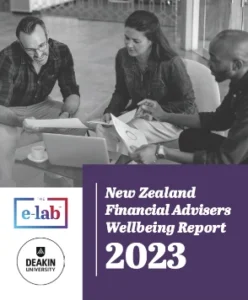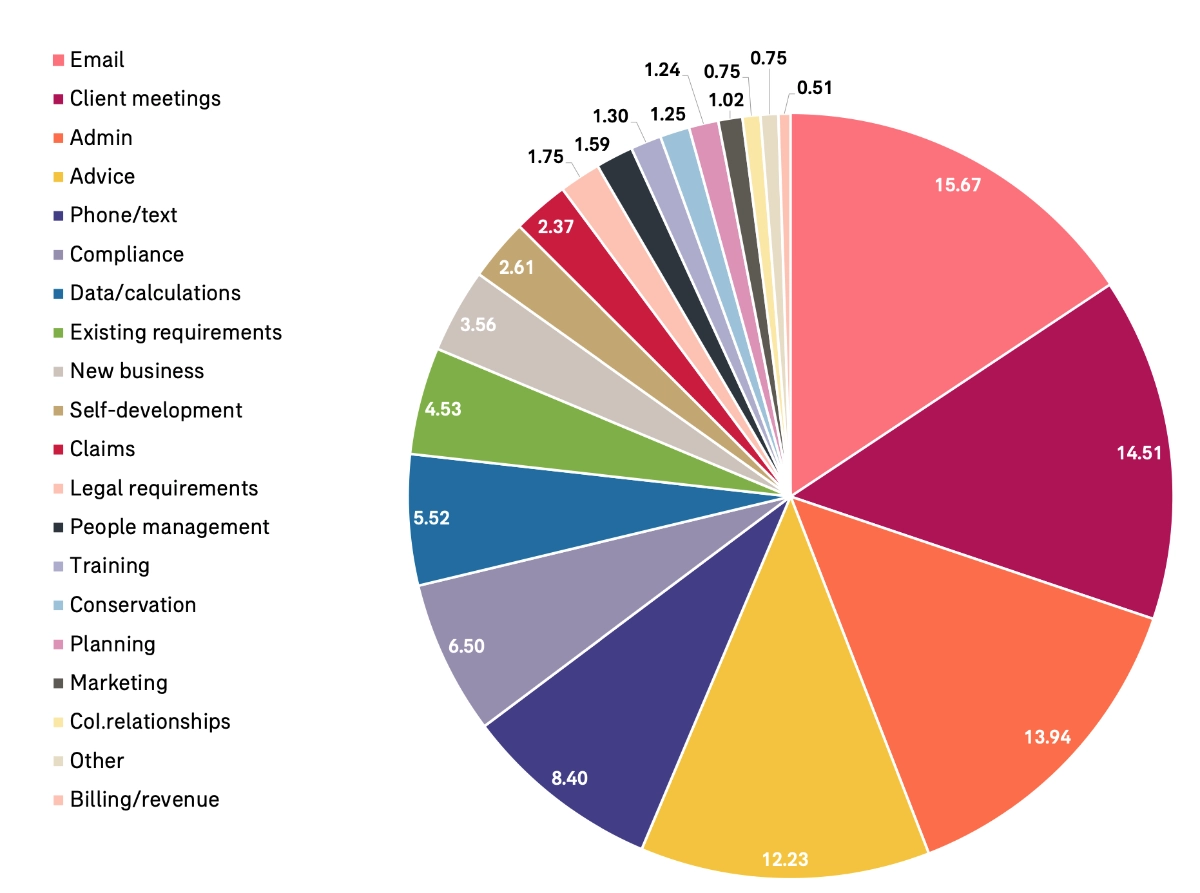A new report shows that while the overall wellbeing of advisers has improved since 2021, compliance is now the highest cause of stress.
In 2021, AIA NZ sponsored a project to gauge the health and wellbeing of advisers. The findings of its 2023 repeat survey – carried out by Dr Adam Fraser, founder of The e-lab, and Dr John Molineux from Deakin University – have just been released.
The report shows that Government regulation was the highest cause of stress for advisers in 2021 at 61%. However, this year the main pressure point was compliance, with half of the 336 advisers completing the survey rating it as ‘highly’ or ‘very highly’ stressful.
“Compared to previous research, we’re noticing a real sense of anxiety which has shifted away from the unknown and towards the fear of making a mistake,” says Sharron Botica, AIA NZ Chief Partnership Distribution Officer.
“This comes as regulation, compliance, and auditing remains front of mind for advisers.”

The biggest impact on advisers was:
- Sleep issues (41%)
- The risk of taking stress leave (19%)
- Seeking medical support (17%)
- Using alcohol to manage stress (15%)
The report’s authors say advisers who are coping well are managing their stress by seeking support from product manufacturers (58%), industry peers (57.9%), groups and FAPs (53.1%).
Others are tackling stress by adopting good wellbeing habits, such as improving their ability to draw boundaries around work-from-home (up 7%), and showing more consideration to self-development in their role (up 4%).
Compared to 2021, advisers are rating their clients as less engaged in their financial wellbeing (a drop of 7%).
The impact that stress is having on adviser health and wellbeing is a concerning factor…
Authors of the report say that while advisers are adopting more proactive habits around their work practice and wellbeing, 41% said workplace stress was having a negative impact on their quality of sleep.
Among the comments made by advisers taking part in the survey include:
- “I think one of the challenges with our regulator is you just don’t know what you’re being tested up against…”

Sharron Botica, AIA NZ Chief Partnership Distribution Officer. - “We converted a spare bedroom because sometimes it just gets too much and I don’t like the heaviness in the atmosphere, so I just removed myself from a negative situation…”
- “It’s okay to have a day off. It’s okay to get that exercise into the diary. It’s okay to not be full to the brim with appointments…”
- “I’m really struggling…with the regulations and demands and ever-changing market, it gets quite challenging…”
The report also looked at where advisers spend their time…Administration (+11.6%) and claims (+76.1%) had a higher ratio in 2023 than in 2021, but this was offset by compliance (-17.6%) and marketing (-42.4%), which was lower in 2023 than 2021.
Where advisers spend their time

Botica says prioritising the mental health and wellbeing of advisers is not only important for their own personal and professional development, but also for the financial wellbeing of the clients they serve and the financial services industry.
“The impact that stress is having on adviser health and wellbeing is a concerning factor which needs to be addressed,” she says.
“We believe our role as leaders in the industry is to ensure our advisers have the tools and support to be mentally healthy, focus on their wellbeing, and have the opportunity to thrive and do what they do best every day.”
A total of 435 advisers attempted the AIA wellbeing survey, with 336 completing it.
Considering your mental wellbeing, do you feel in a better place than this time last year?
- No (52%)
- Yes (27%)
- About the same (22%)
- Not sure (0%)





